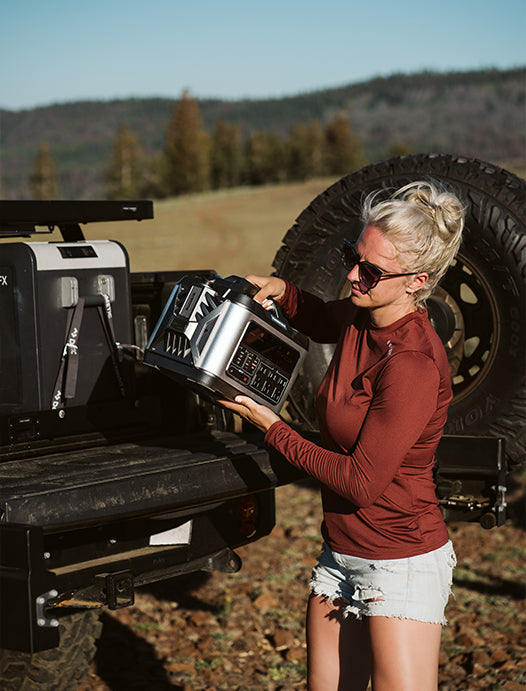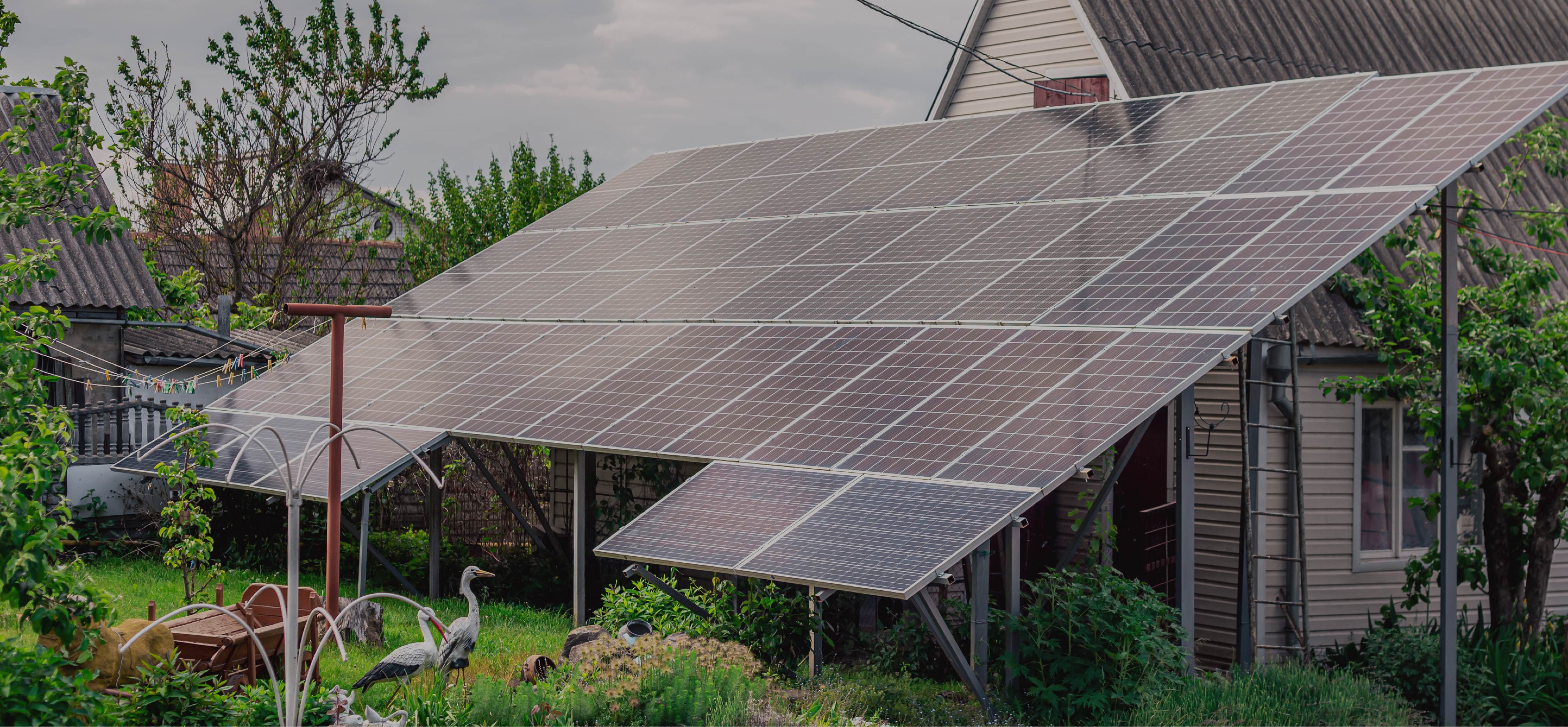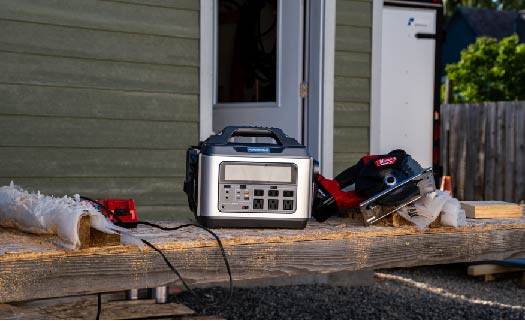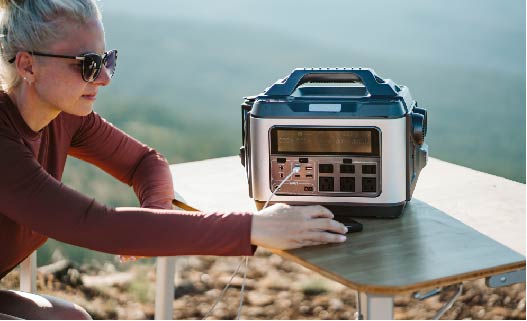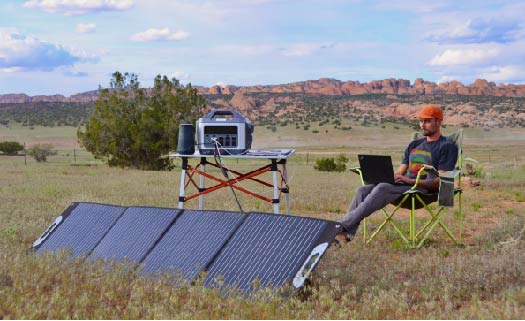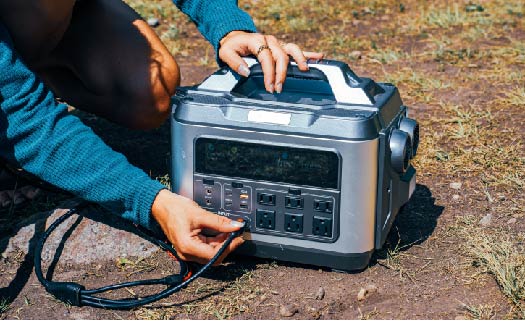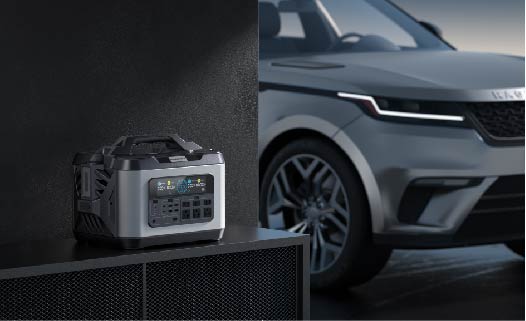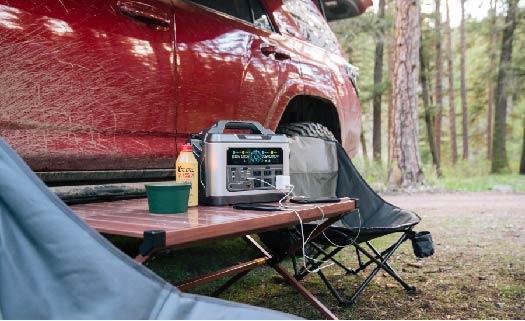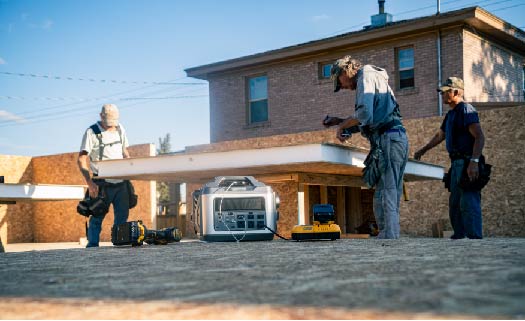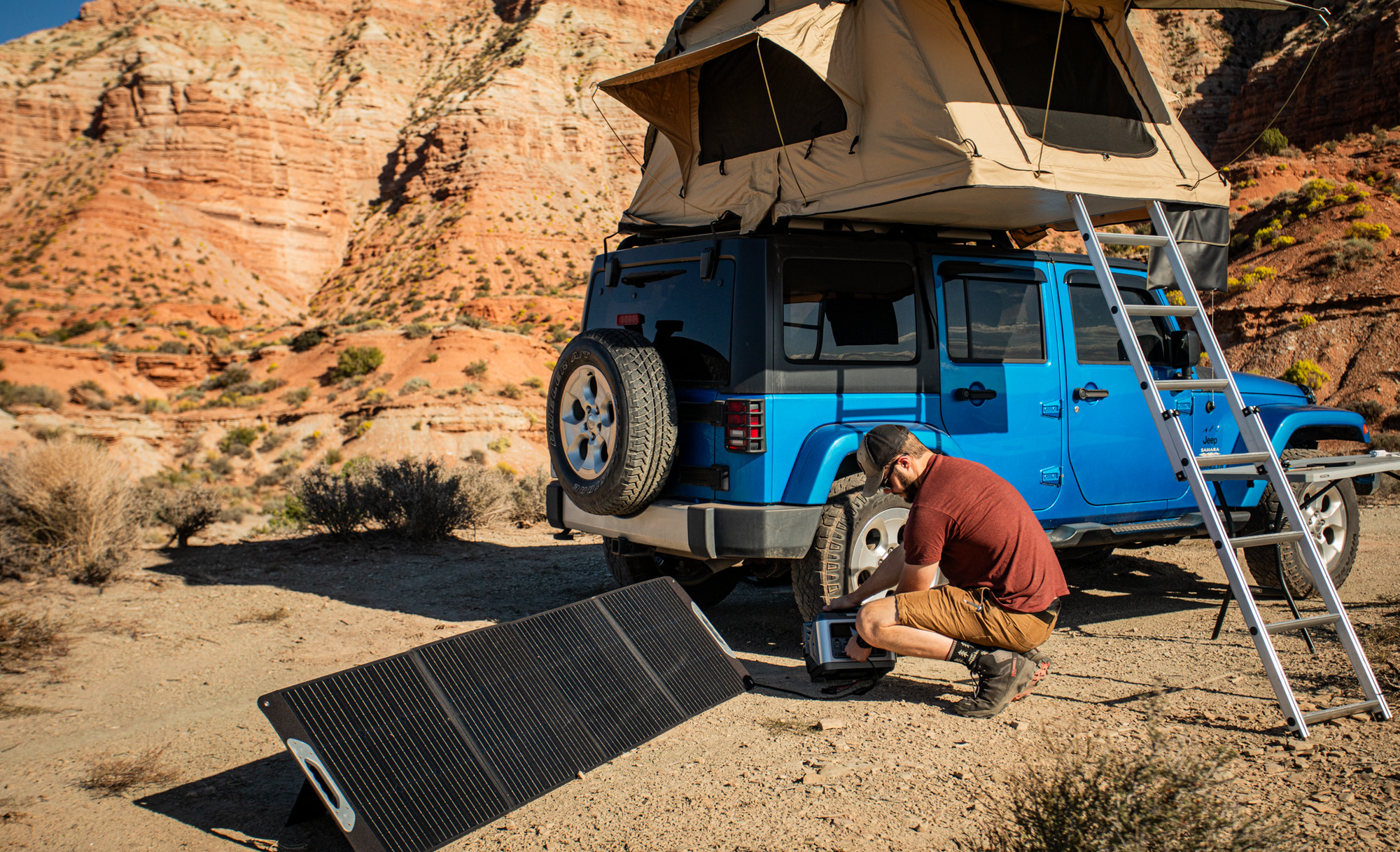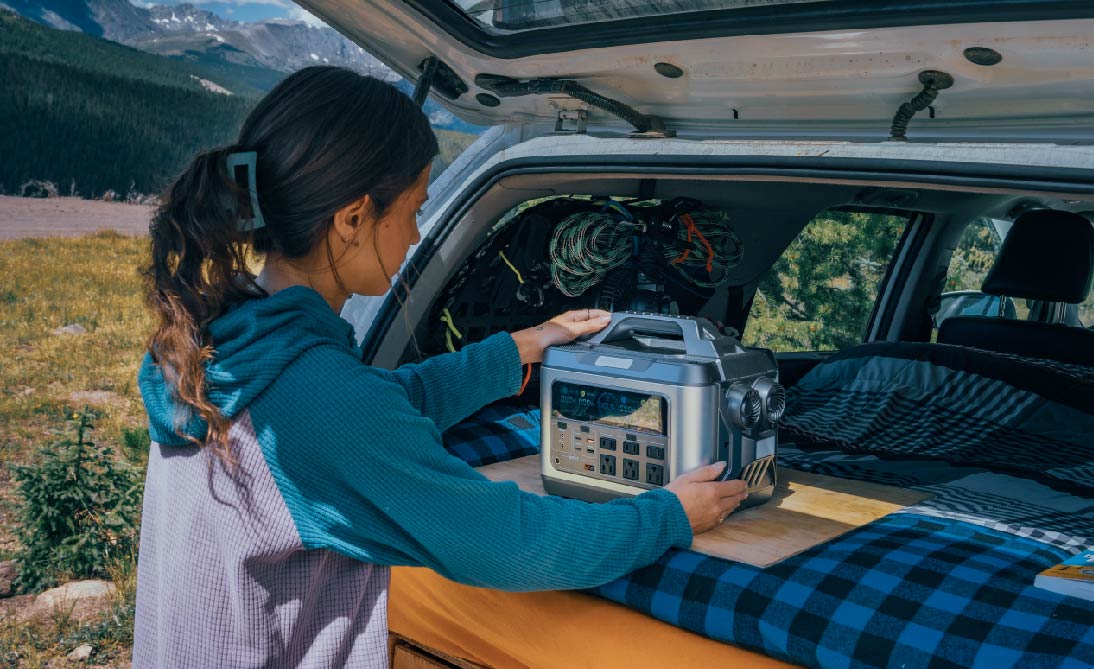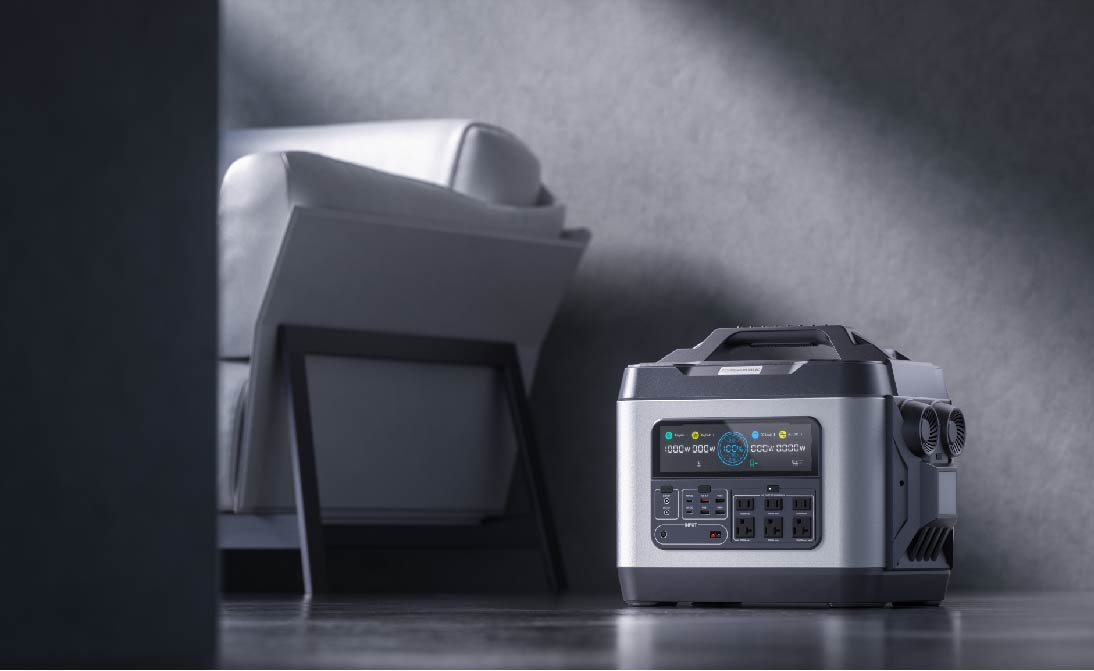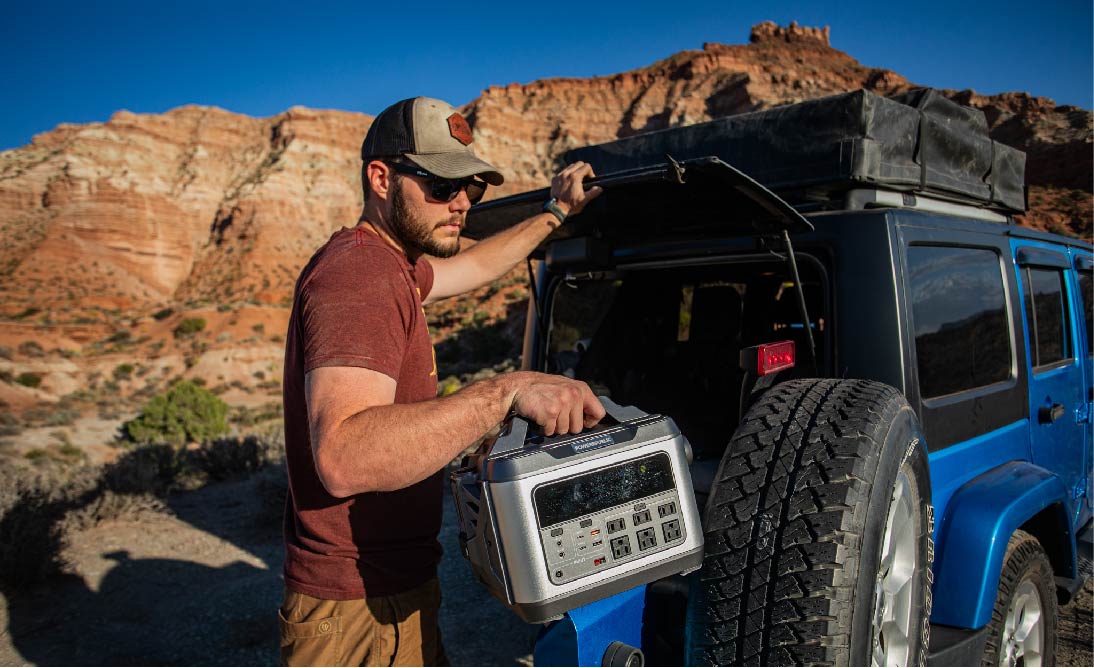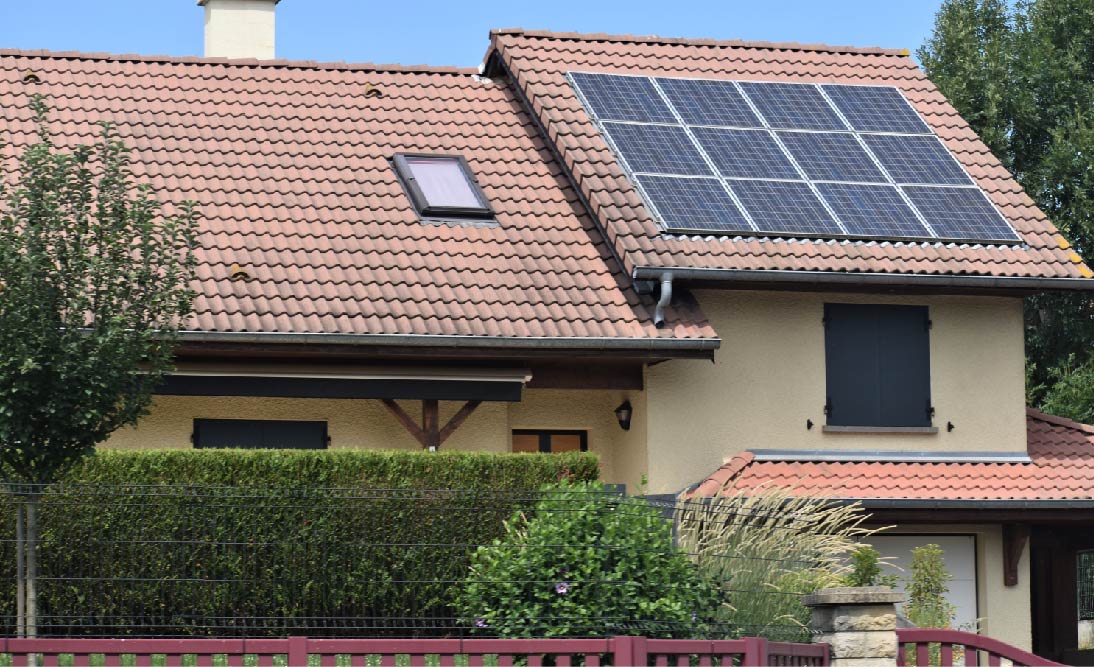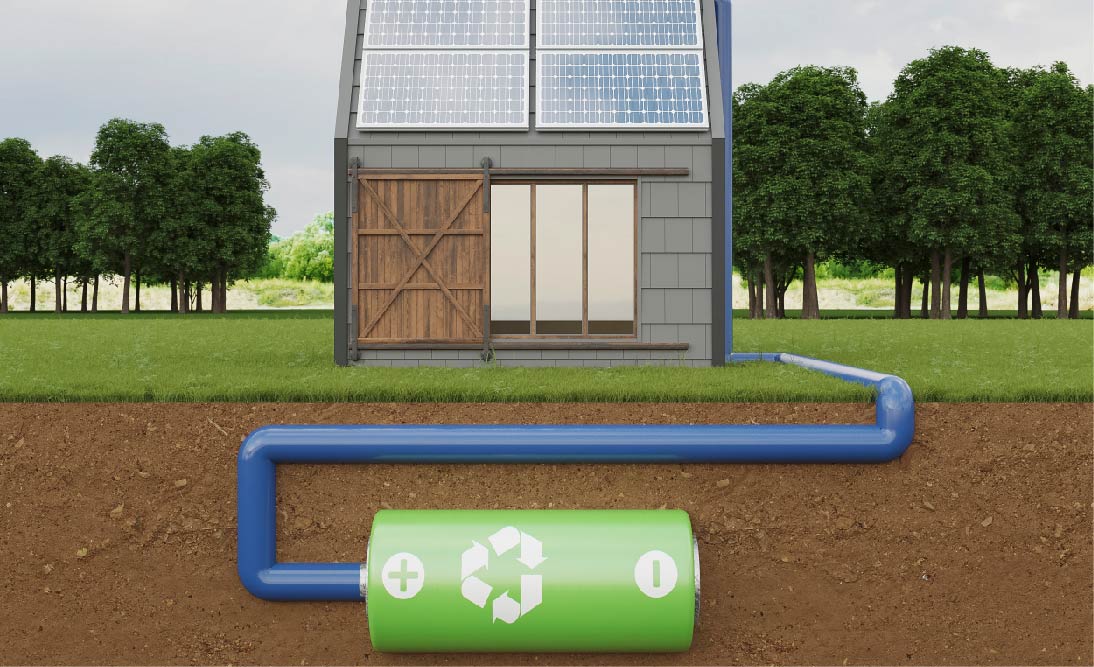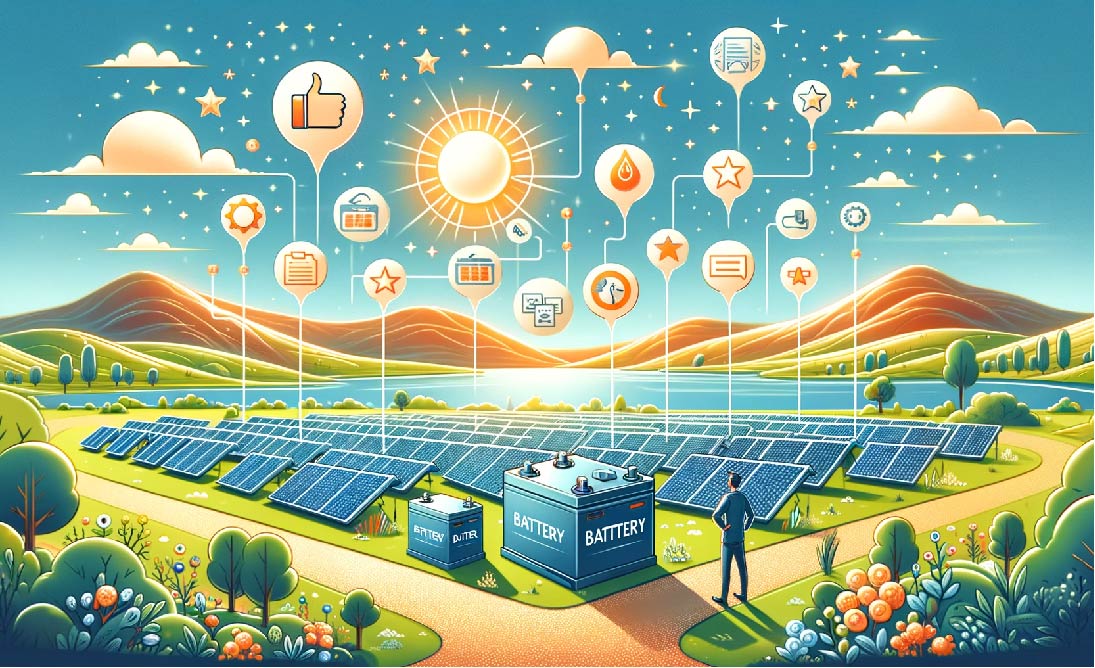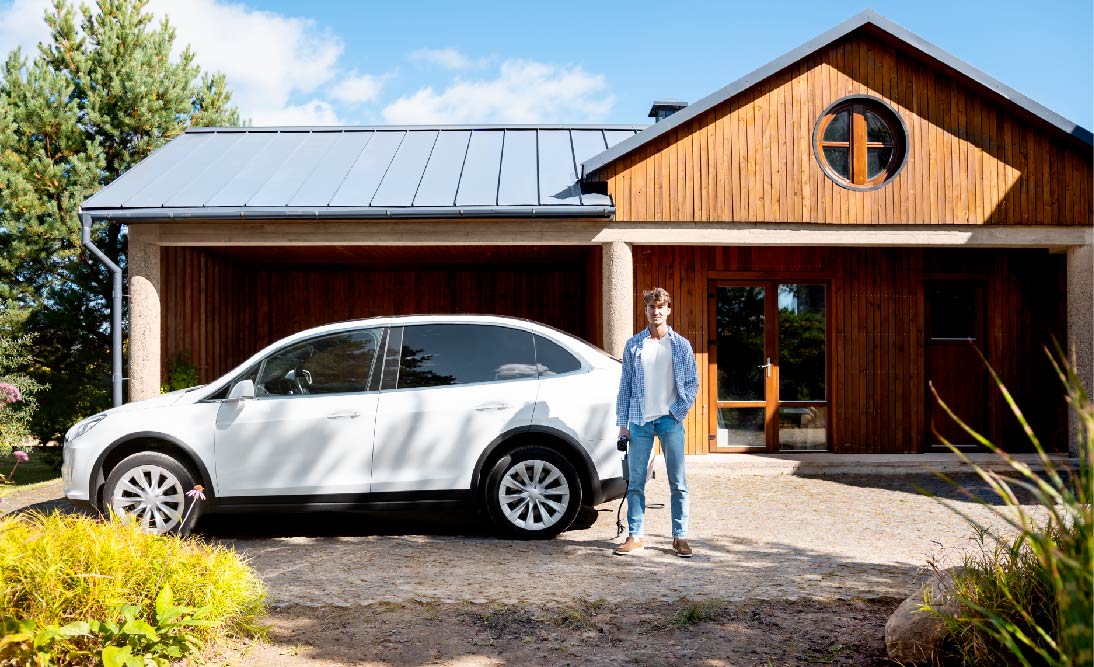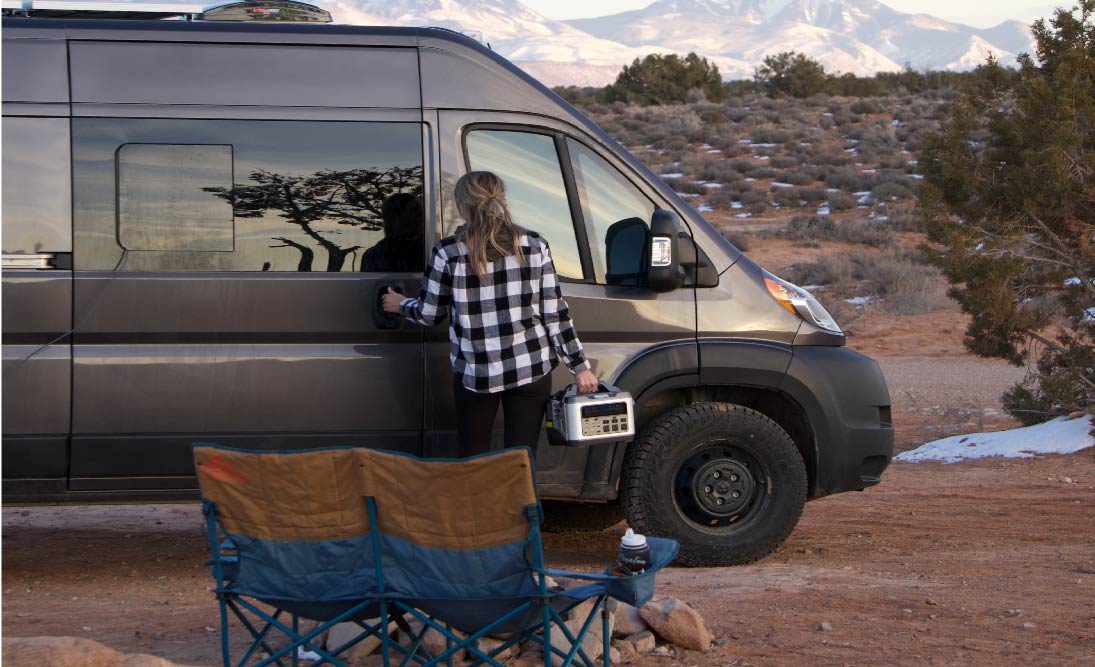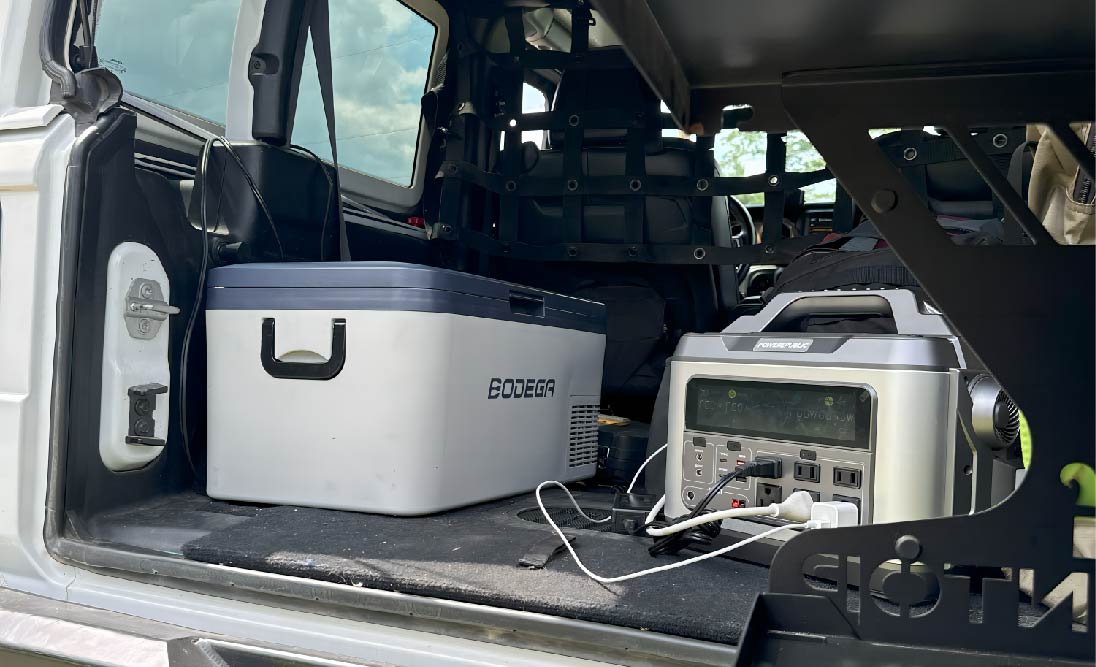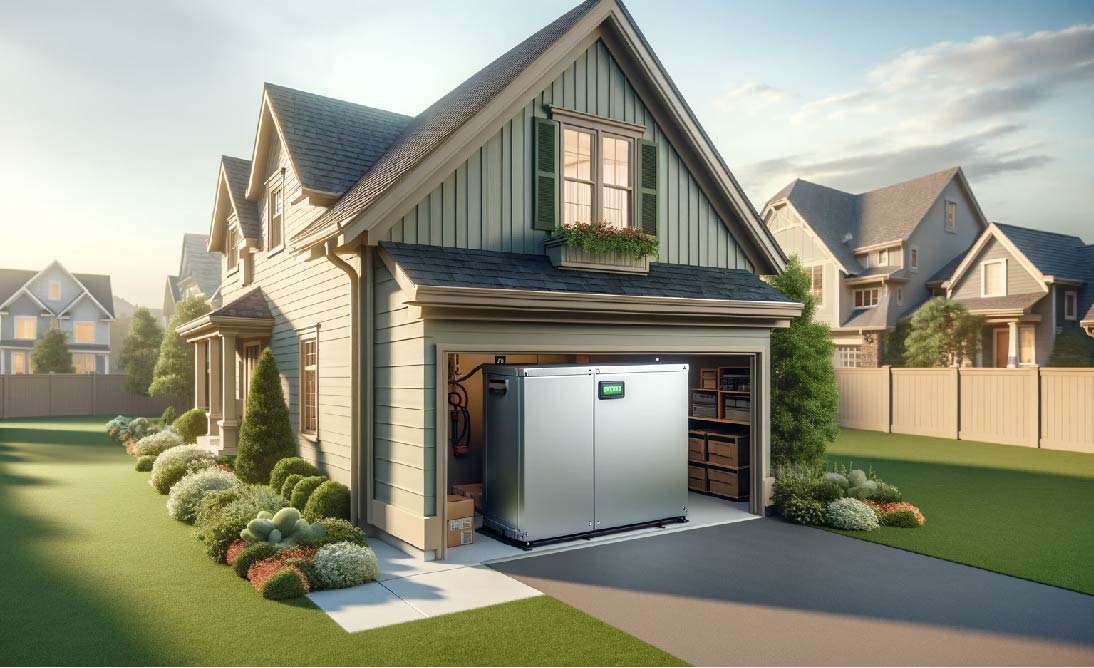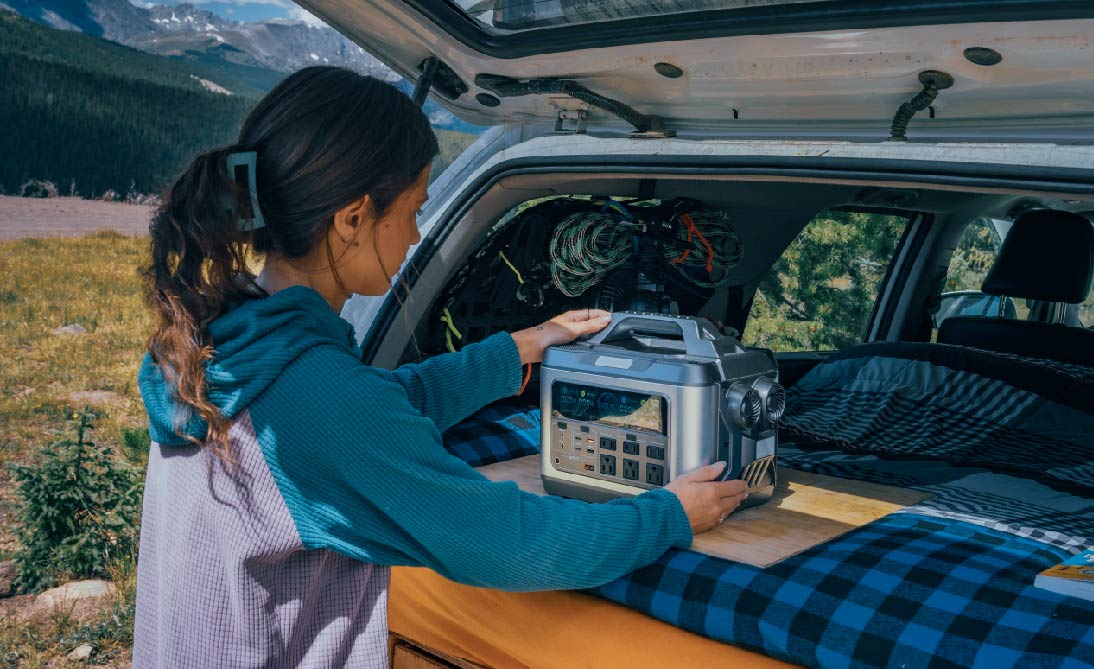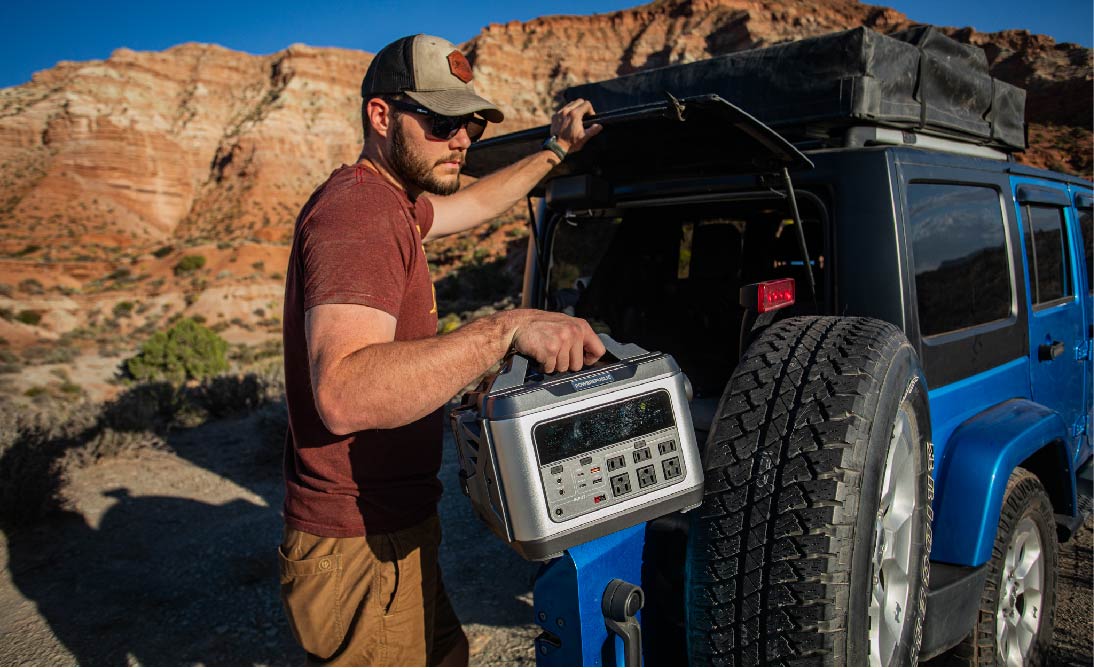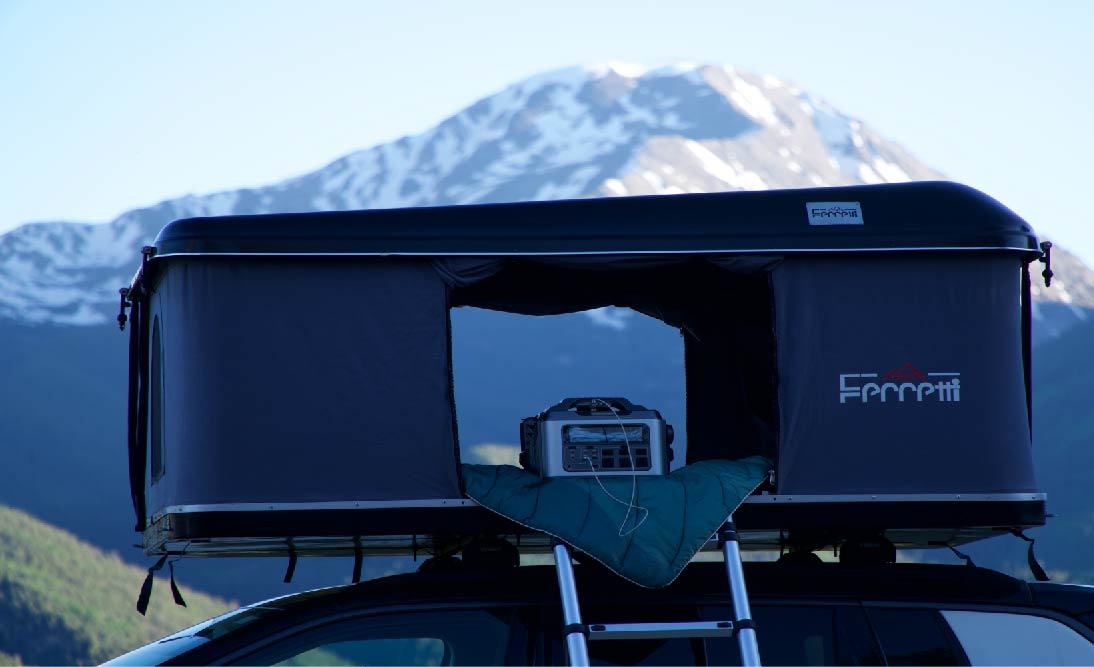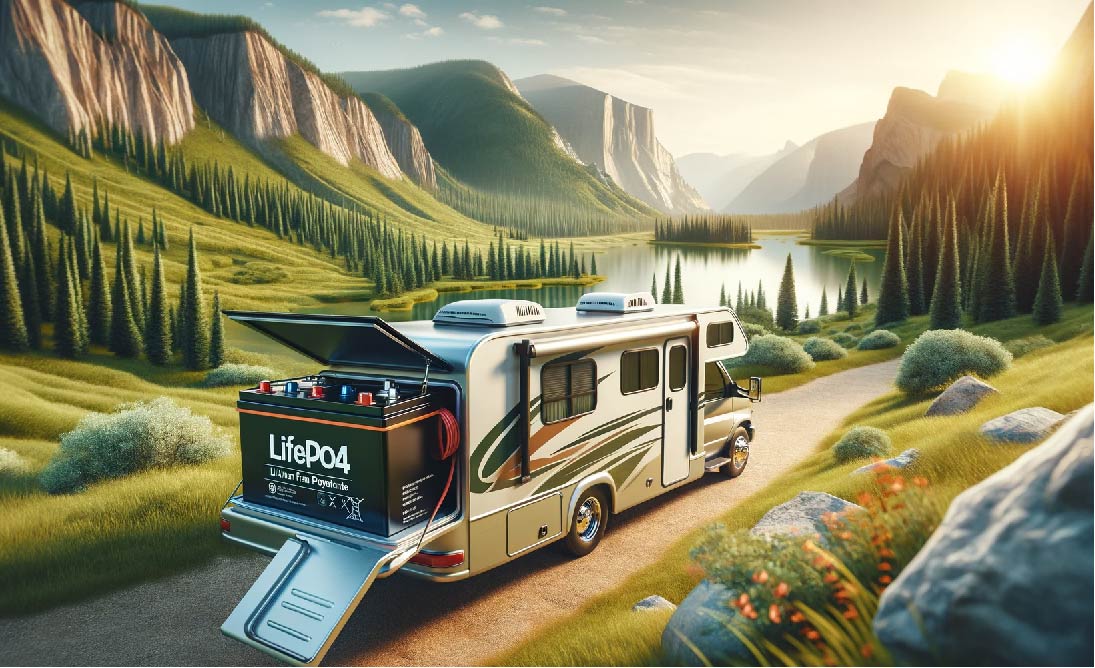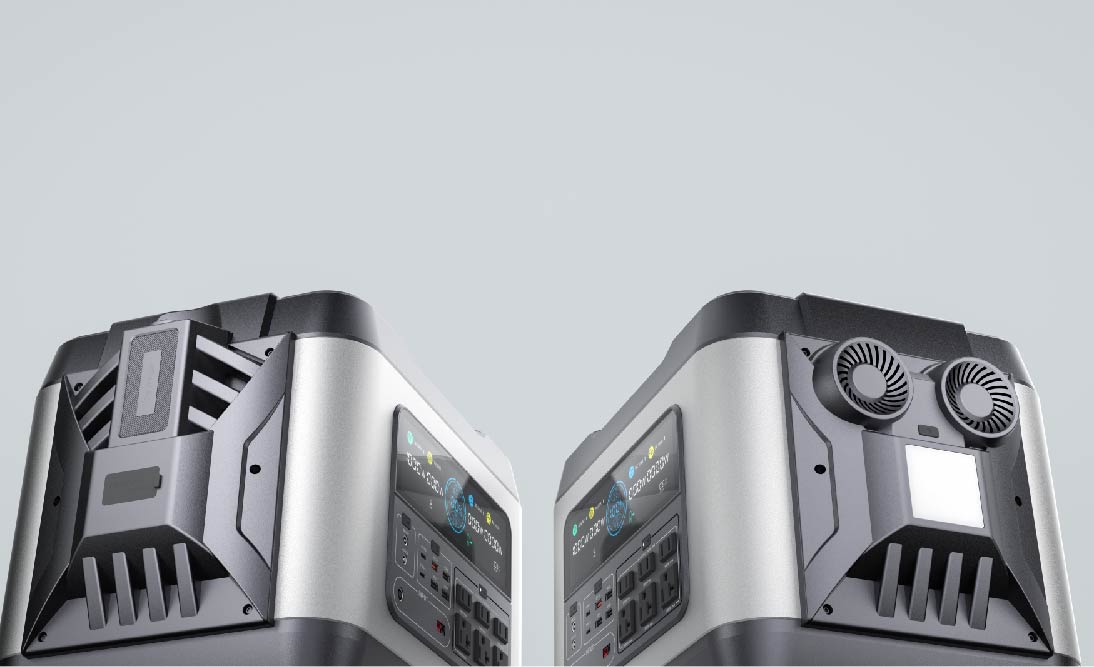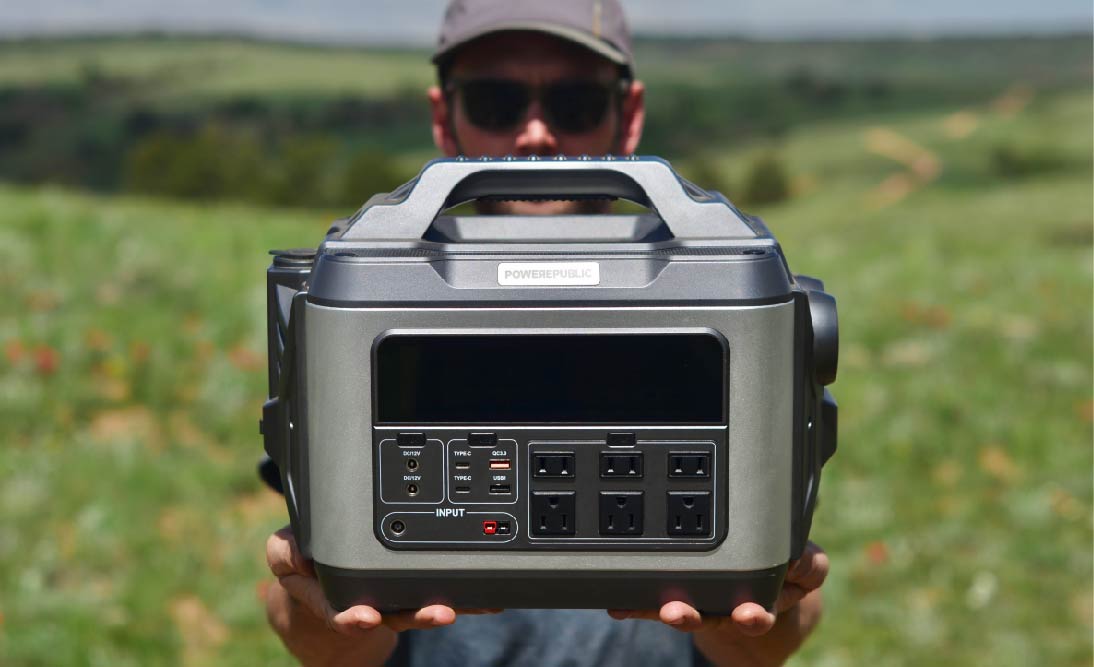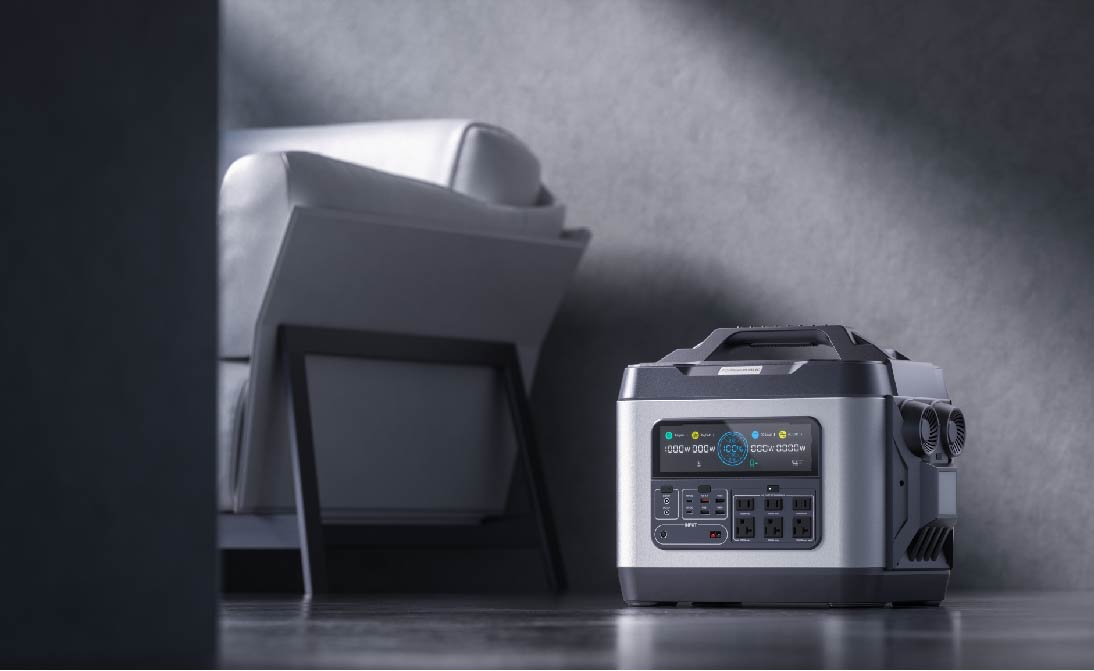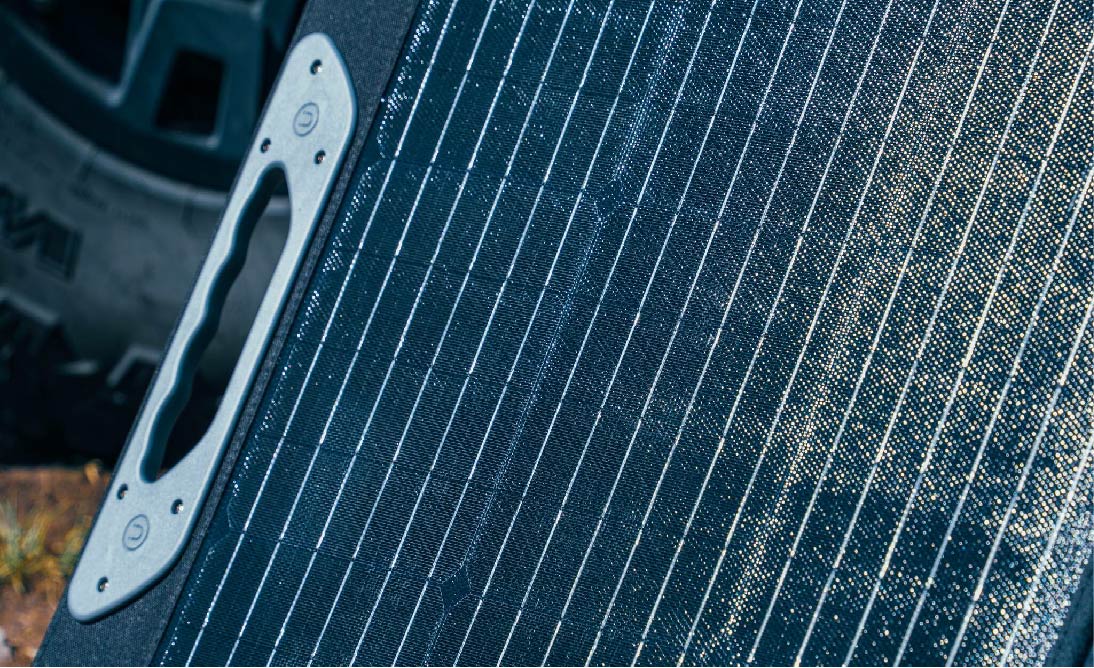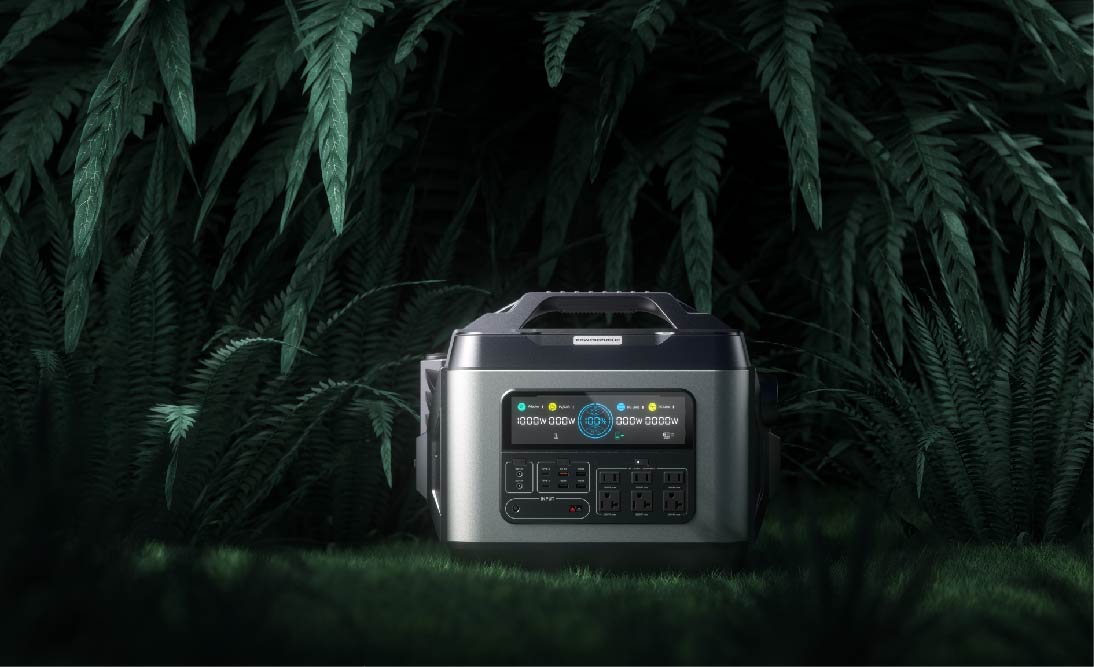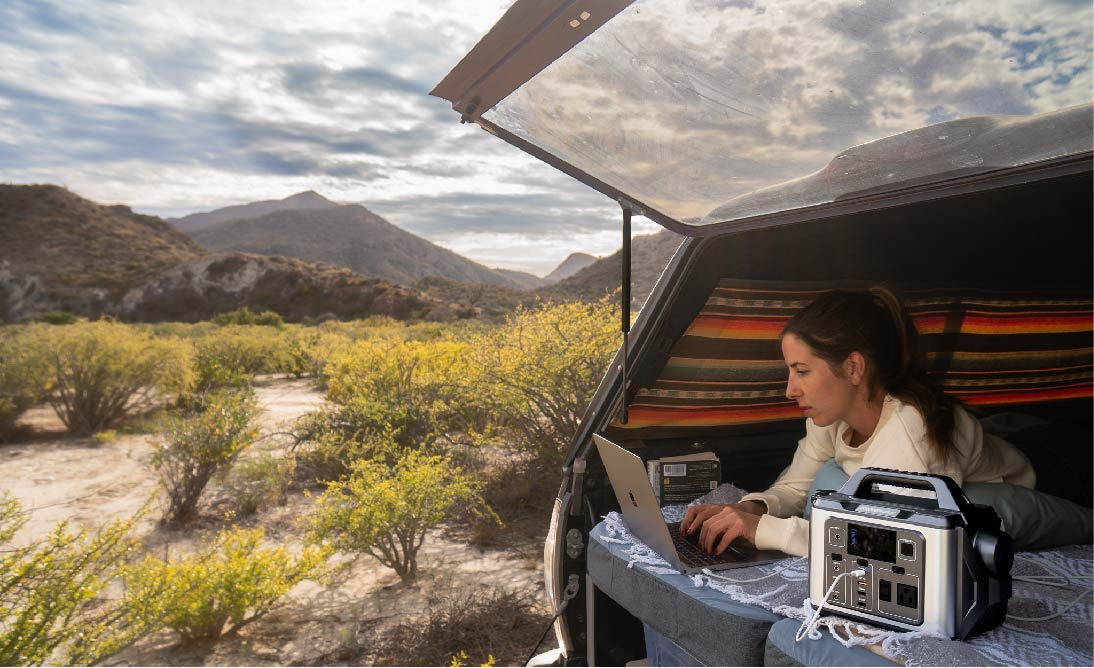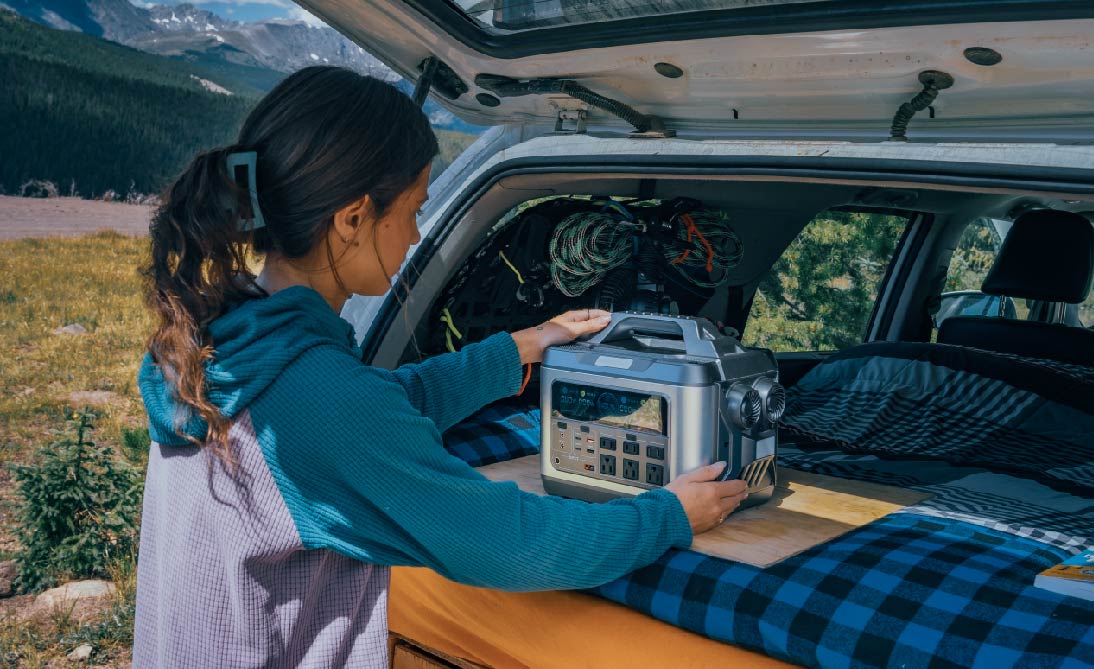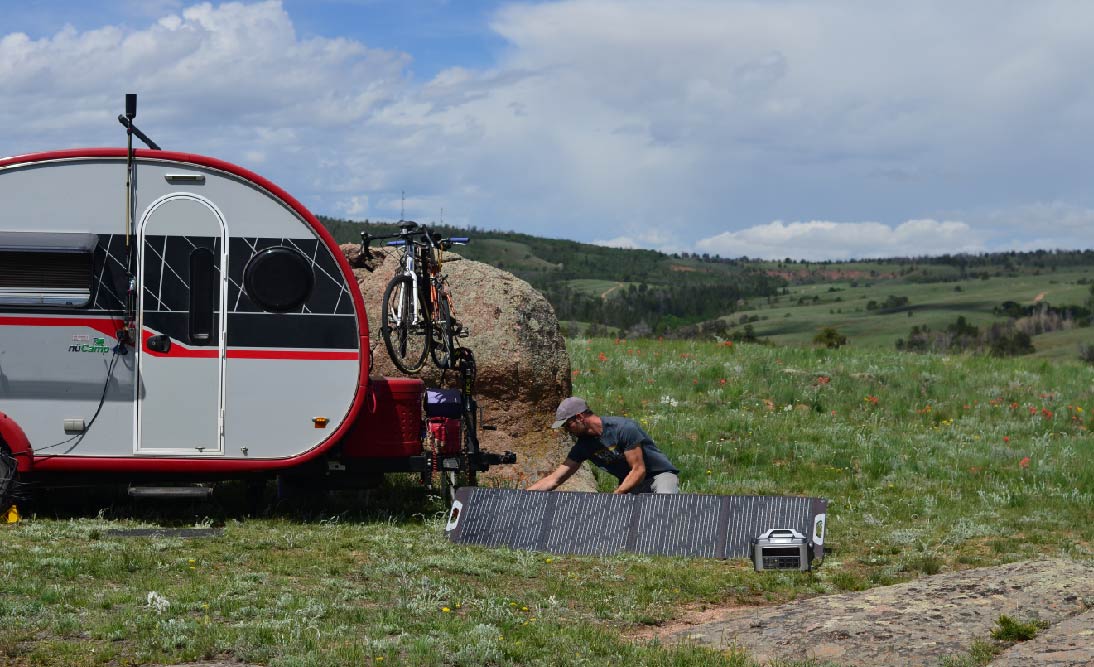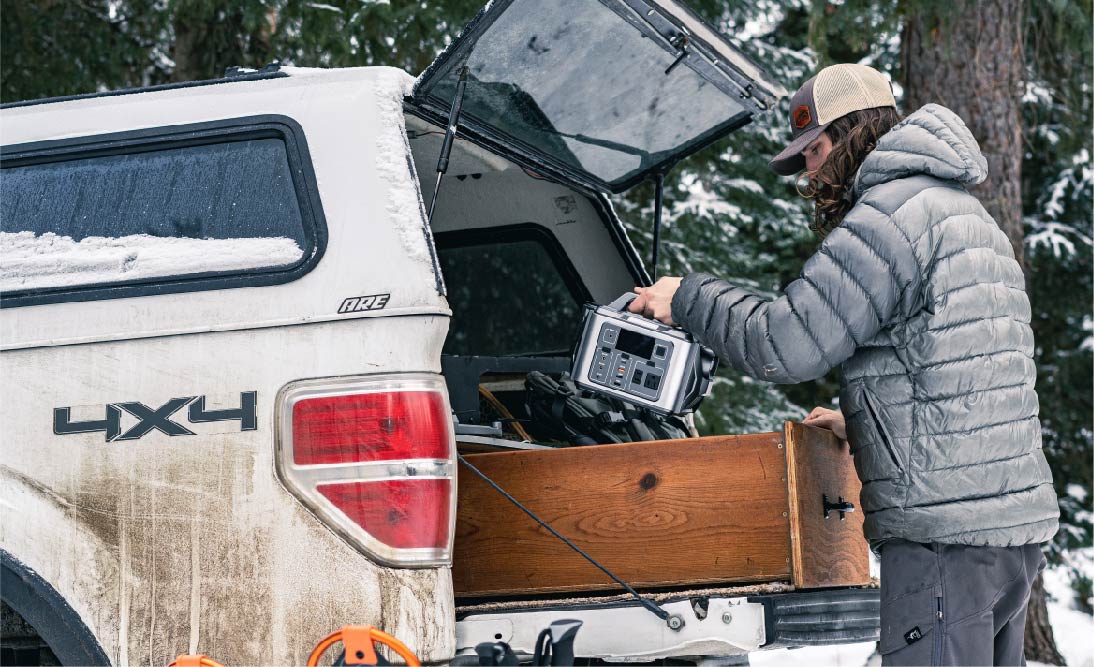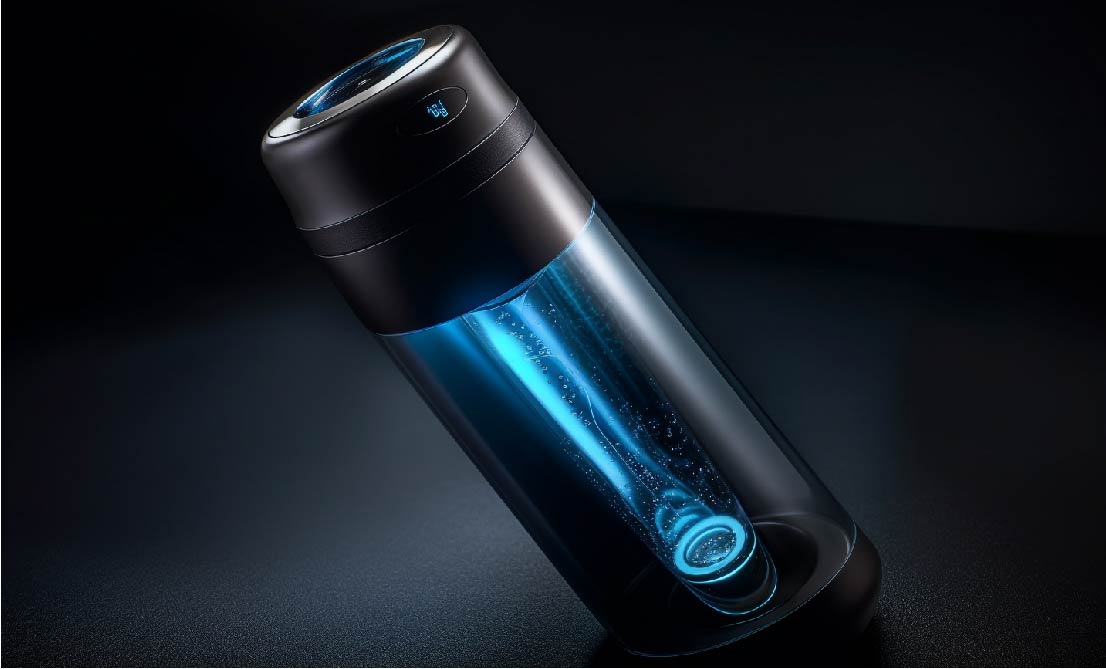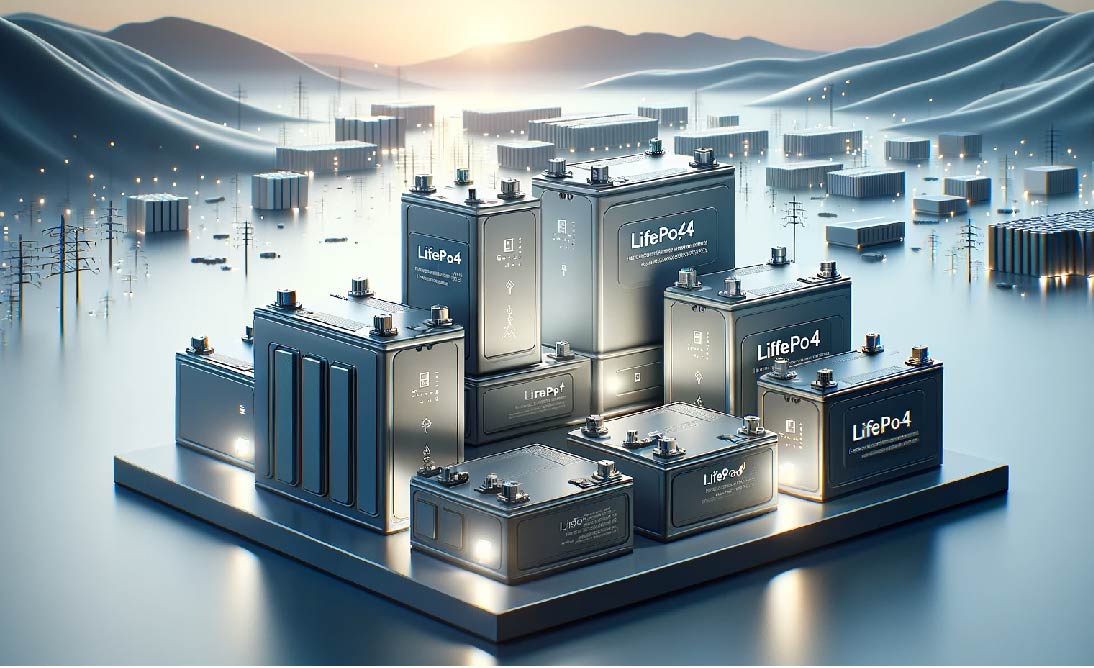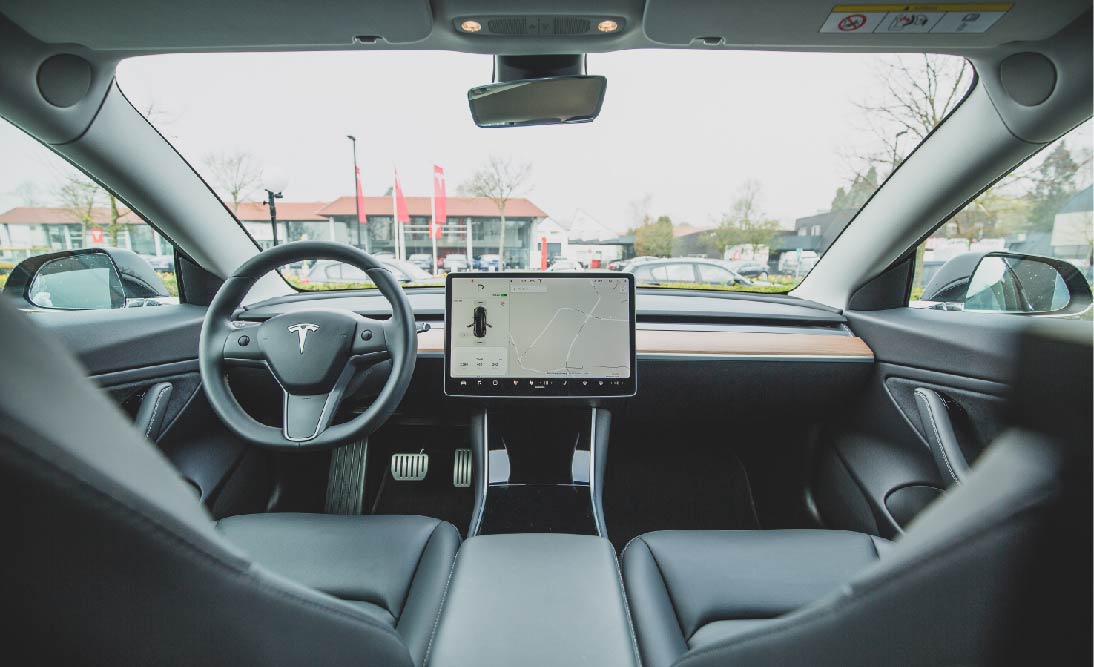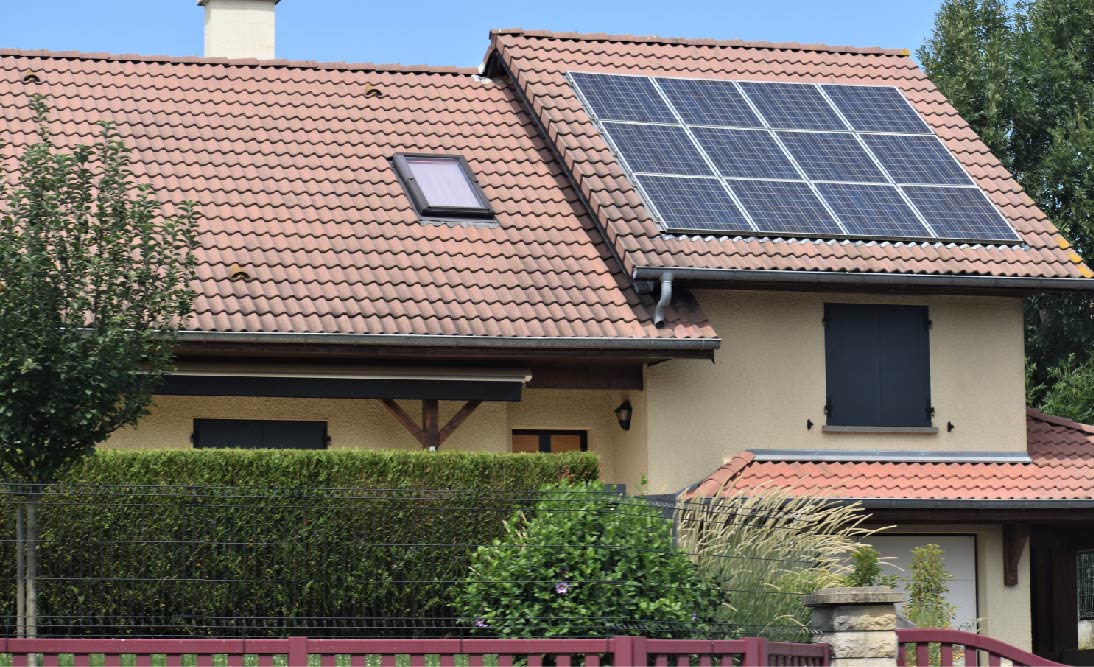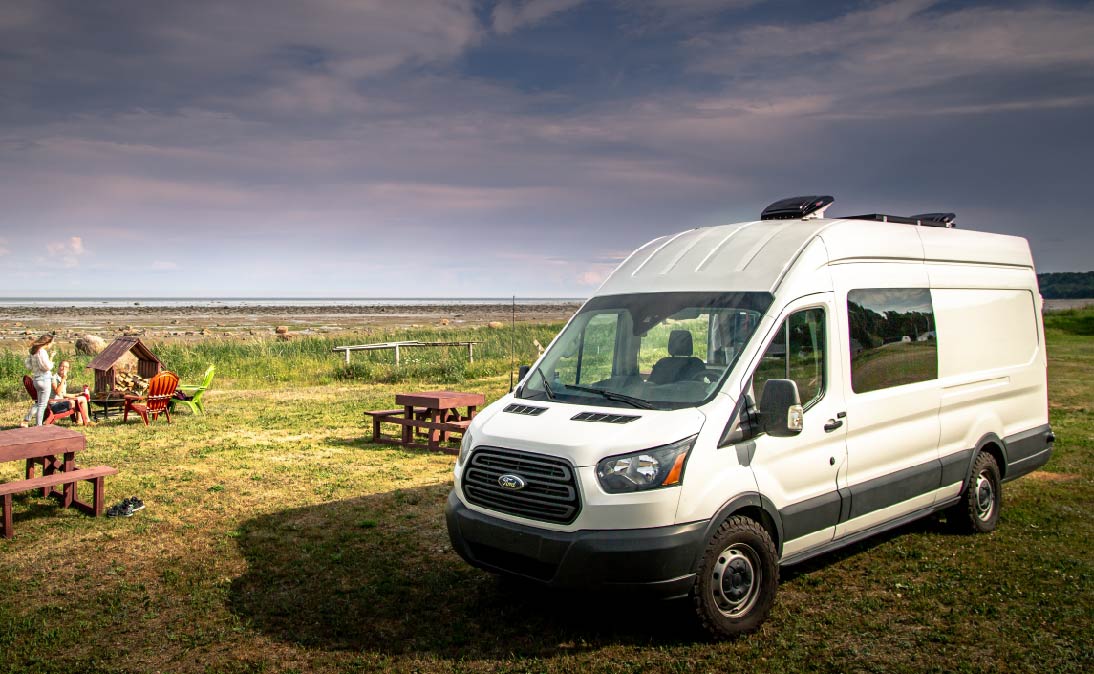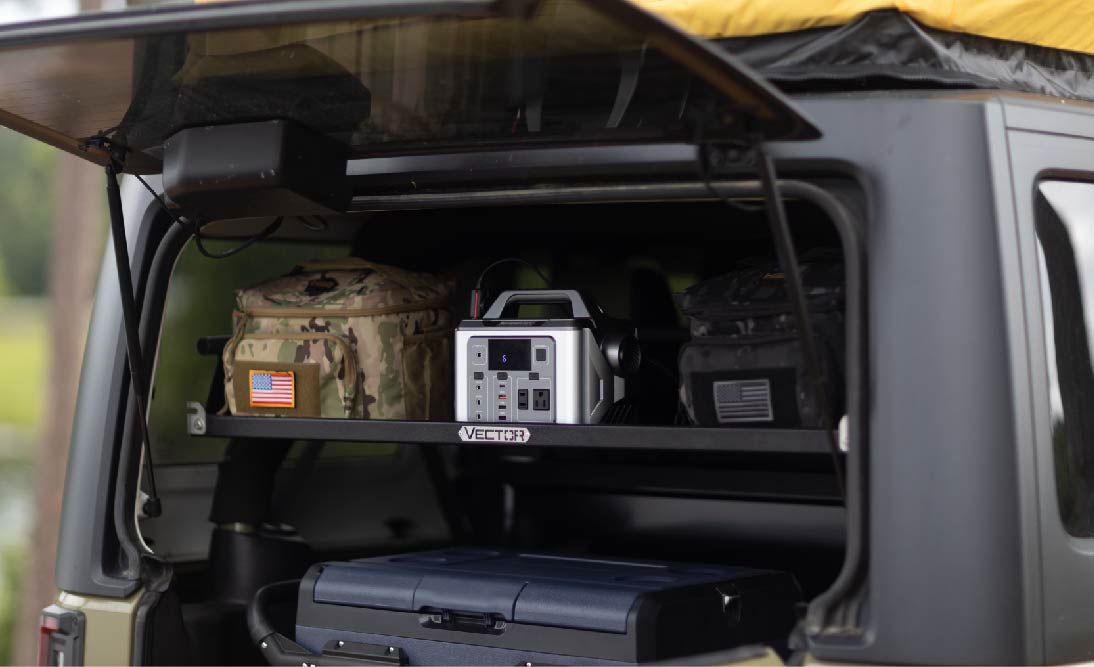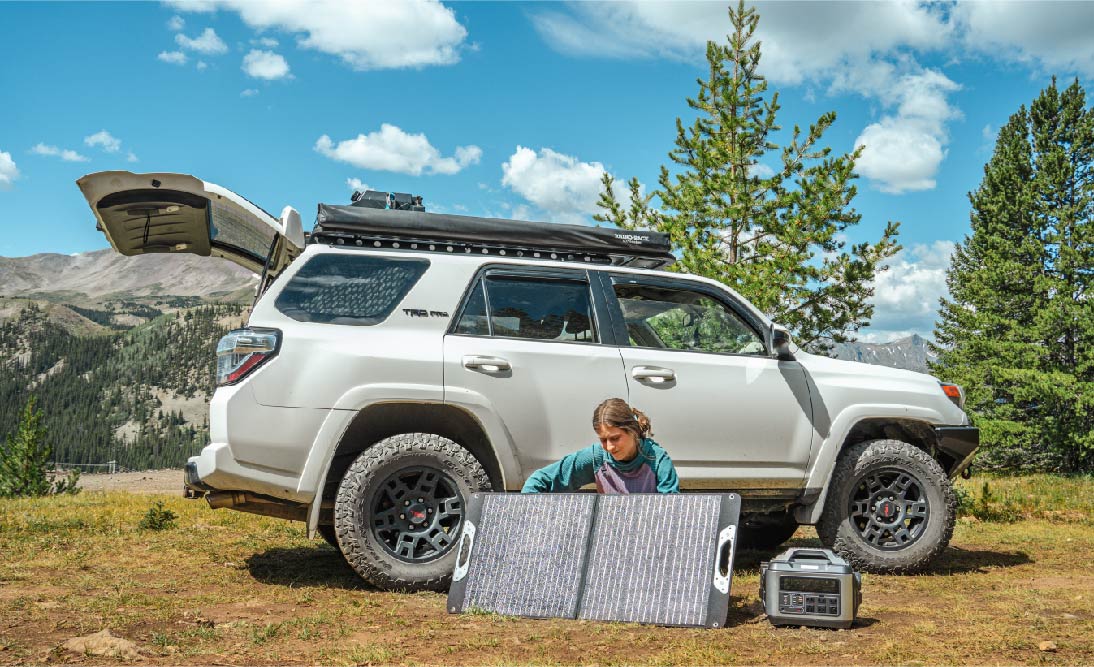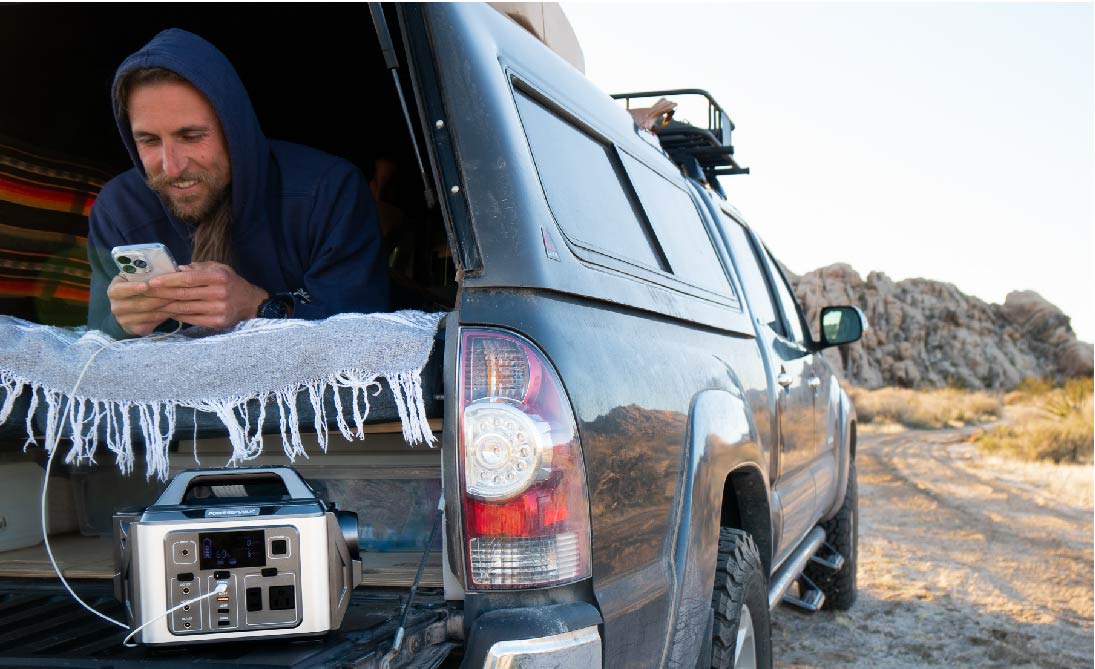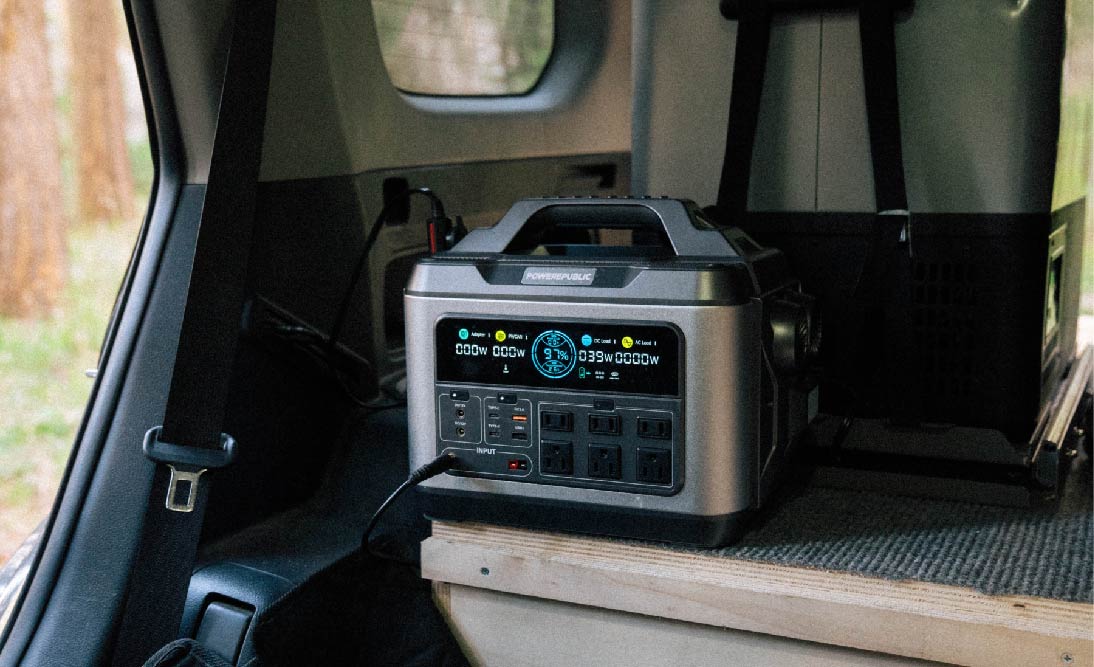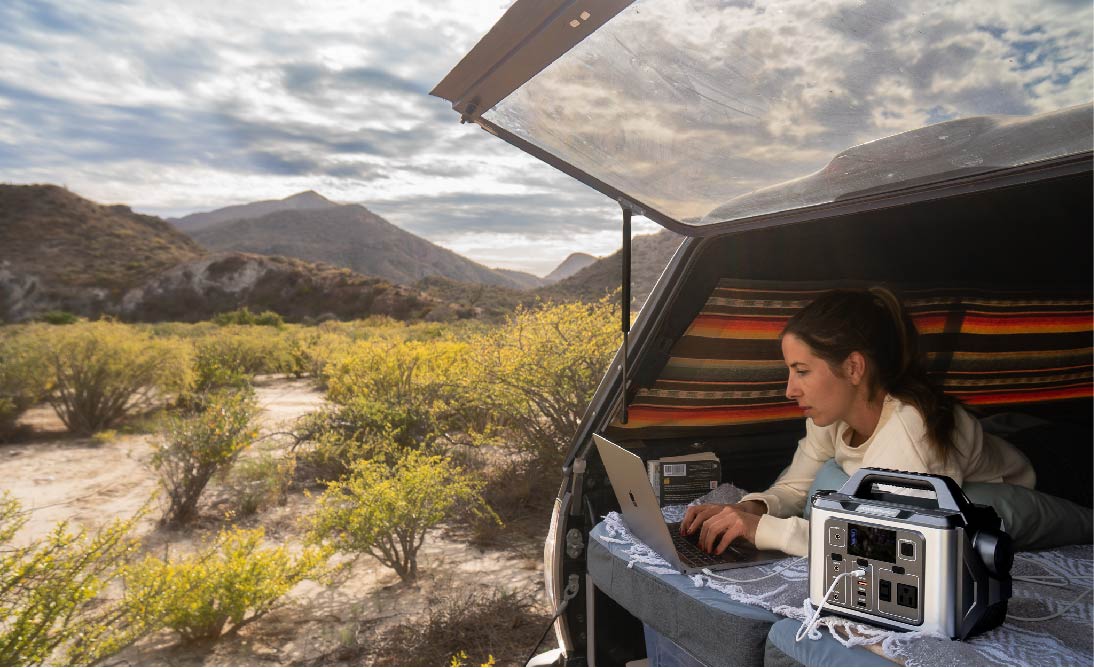Table Of Contents:
We all live in a world that heavily depends on electricity. If you live in a metropolitan area, power outages may not seem like a problem, as metropolises have well-developed infrastructure. However, if you live in some areas with limited electricity due to weather conditions and other factors, having enough electricity to back you up is extremely important, especially for appliances like refrigerators, lights, washing machines, and other essential devices.
A good way to have backup power during unexpected power outages would be to have a whole house solar generator by your side. It can serve not just as an emergency power source; some whole house solar generators with high power output and capacity can also serve as an Uninterruptible Power Supply (UPS).
In this article, we will provide a brief explanation of whole house solar generators, how they work, their pros and cons, why you should have one, and introduce POWEREPUBLIC’s solar generator kits as one of the options for whole house solar generators.
What is a Whole House Solar Generator?

A whole house solar generator is a system that generates electricity from solar energy and is designed to provide power to an entire household or building. Unlike traditional solar panels that are grid-tied and primarily feed excess electricity back into the utility grid, a whole house solar generator typically includes energy storage in the form of batteries. This stored energy can be used during power outages or when the sun is not shining, making it a reliable backup power source for your entire home.
The key components of a whole house solar generator system often include:
-
Solar Panels: These panels harness the sunlight and convert it into electricity for later use.
-
Inverter: An inverter converts the direct current (DC) electricity produced by the solar panels into alternating current (AC) electricity, which is used in most household appliances.
-
Battery Storage: Energy storage batteries store excess electricity generated during the day for use when the sun is not shining or during power outages.
-
Charge Controller: This device regulates the flow of electricity to and from the battery, ensuring efficient charging and discharging.
-
Backup Generator (optional): Some whole house solar generators may also include a backup generator that runs on conventional fuel, such as propane or natural gas, to provide additional power when needed.
Whole house solar generators can help homeowners and businesses reduce their reliance on the grid, save on energy costs, and maintain power during outages, making them a valuable addition for those seeking reliable and sustainable energy solutions.
Types Of Whole House Solar Generators

When considering whole house solar generators, there are common types widely applied in daily life. Let's take a look at them:
-
Solar + Battery Systems: These systems consist of solar panels installed on the roof or in a sunny location and a battery storage system. During the day, the solar panels generate electricity and charge the batteries. The stored energy can be used at night or during power outages.
-
Solar Generator Kits: These are compact, portable systems that include solar panels and a built-in battery or a portable power station. While they may not be sufficient for powering an entire house, they are useful for running essential appliances and devices during emergencies or in off-grid situations.
-
Hybrid Solar Inverter Systems: In addition to solar panels, these systems include a hybrid inverter, which can switch between grid-tied and off-grid modes. When the grid goes down, they can provide power from solar and batteries.
-
Generator Backup Systems: Some whole house solar generator setups incorporate a conventional backup generator, often running on propane or natural gas. These systems combine the benefits of solar and backup generators to ensure continuous power supply.
The choice of a specific type of whole house solar generator depends on your energy needs, budget, and preferences. It's essential to assess your energy consumption, the amount of backup power required, and the local solar conditions when selecting the right system for your home or business.
How Do Whole House Solar Generators Work?

In general, we know that solar panels and batteries work together to harness, store, and generate electricity for devices and appliances. But since there are different types of whole house solar generators, let’s take a look at the operation of each type to get a clearer idea.
Solar + Battery Systems
-
Solar panels capture sunlight and convert it into electricity during the day.
-
This electricity is used to power the home's electrical needs while simultaneously charging the batteries.
-
Excess electricity generated is stored in the battery system for later use.
-
During the night or power outages, when the solar panels aren't generating power, the stored energy in the batteries is used to supply the home with electricity.
-
The system includes an inverter that converts the DC electricity generated by the solar panels into AC electricity used in most household appliances.
-
Energy management systems monitor and control the flow of electricity to ensure efficient charging and discharging.
Solar Generator Kits
-
Solar generator kits consist of portable solar panels and a built-in battery system or a portable power station.
-
Solar panels capture sunlight and convert it into electricity.
-
The electricity generated is used to charge the built-in battery, providing a convenient source of stored energy.
-
While these kits may not be sufficient for powering an entire house, they are designed to run essential appliances and devices during emergencies or in off-grid situations.
-
These compact, portable systems are easy to set up and use, making them suitable for various outdoor and emergency scenarios.
Hybrid Solar Inverter Systems
-
Solar panels generate electricity from sunlight as in traditional solar systems.
-
These systems also include a hybrid inverter that can switch between grid-tied and off-grid modes.
-
During normal conditions, the solar energy generated can be used in the home while any excess can be sent back to the grid.
-
When the grid goes down, the hybrid inverter allows the system to operate in an off-grid mode, using the solar energy stored in the batteries.
-
This design ensures a seamless transition between grid-connected and off-grid operation during power outages.
Generator Backup Systems
-
Solar panels generate electricity, which is used to power the home and charge the batteries as in standard solar systems.
-
In addition to solar panels and batteries, these systems include a conventional backup generator, typically powered by propane or natural gas.
-
When power outages occur, the backup generator automatically kicks in to provide continuous power to the home.
-
The solar panels and batteries work in conjunction with the backup generator, offering both renewable and conventional power sources.
-
These systems provide the reliability of backup generators while still benefiting from solar energy during non-outage periods.
Pros and Cons - Why Should You Get a Whole House Solar Generator?

No doubt having a whole house solar generator will provide backup power during unexpected outages, especially in remote areas or regions with extreme weather conditions. Understanding the pros and cons of each type will help you make more informed decisions about your investment.
Let's explore the pros and cons, and the price range of different types of whole house solar generators using the following table:
|
Generator Type |
Pros |
Cons |
Price Range (Est.) |
|
Solar + Battery Systems |
|
|
$10,000 - $25,000+ |
|
|
|
|
|
|
|
|
|
|
|
|
|
|
|
|
Solar Generator Kits |
|
|
$500 - $2,000+ |
|
|
|
|
|
|
|
|
|
|
|
|
|
|
|
|
Hybrid Solar Inverter Systems |
|
|
$15,000 - $35,000+ |
|
|
|
|
|
|
|
|
|
|
|
|
|
|
|
|
Generator Backup Systems |
|
|
$5,000 - $15,000+ |
|
|
|
|
|
|
|
|
|
|
|
|
|
|
|
How to Choose the Best Whole House Solar Generators?

The choice of a whole house solar generator depends on individual needs, budget, environmental considerations, and other factors.
Assess Your Energy Needs
-
Start by calculating your daily electricity consumption. You can find this information on your utility bill. For example, if your daily consumption is 30 kWh, you'd want a generator capable of producing at least this amount.
-
Use online tools or consult with a professional to estimate the size of the solar panel array required to meet your daily energy needs. In this example, a 10 kW system could generate 30 kWh per day.
-
If you want to know how to determine the total number of solar panels you need, click Here.
-
If you want to know how to determine the total wattage of solar panels you need, click Here.
Identify Backup Power Needs
-
Determine your critical load requirements during a power outage. These are the appliances and devices you want to run during an outage.
-
For instance, you might need to power essential appliances like a 1,000-watt refrigerator, a 150-watt light, and a 1,500-watt heating system. Together, they require 2,650 watts (or 2.65 kW) of backup power.
Determine Your Budget
-
Establish a budget for your whole house solar generator. Consider both the initial installation cost and ongoing maintenance.
-
For instance, if your budget is $15,000, you'd want to find a system that fits within this financial constraint, including installation costs and any additional features.
Consider Environmental Impact
-
Think about your environmental values and goals. Solar generators are eco-friendly, but some systems are more environmentally responsible than others.
-
Research the carbon footprint reduction potential. If your solar generator can reduce CO2 emissions by 2 tons per year, it's equivalent to planting around 90 trees annually.
Evaluate Available Space
-
Determine the available space for solar panel installation. The number of panels you can install depends on your roof size or available land.
-
For example, if you have a rooftop space of 500 square feet and each solar panel requires 20 square feet, you can fit 25 panels on your roof.
Consider Local Climate and Sunlight
-
Assess the local climate and sunlight conditions. Different regions receive varying levels of sunlight throughout the year.
-
Calculate the solar panel output for your location. A 1 kW solar panel system in a location with an average of 4 hours of peak sun per day will generate 4 kWh per day.
Research Available Incentives and Rebates
-
Investigate solar incentives and rebates in your area. Government incentives can substantially reduce the upfront costs of solar installations.
-
For example, a 30% federal tax credit on a $20,000 system would save you $6,000.
Examine System Quality and Warranty
-
Research the quality and warranty of the components, including solar panels, inverters, and batteries. High-quality components often come with longer warranties.
-
Also, always purchase these components or systems from trustworthy brands and manufacturers. Make sure to also check their reviews online, such as Trustpilot.
By thoroughly considering these factors, performing calculations, and conducting research, you can confidently choose the best whole house solar generator to meet your specific energy needs, budget, and environmental objectives while ensuring reliable backup power during outages, and making the best out of your investment.
POWEREPUBLIC Solar Generator Kits as Whole House Solar Generators

Before introducing POWEREPUBLIC Solar Generator kits, let me first answer a frequently asked question:
Q: Can a Solar Generator Kit Power The Entire House?
A: Yes, it can!
However, it depends on the size of the house, the types of devices and appliances you wish to power, and the duration of power needed. Solar generator kits have limitations in power output and battery capacity, making them more suitable for smaller spaces like cabins or for use during power outages and outdoor activities. They may not be as powerful as other whole house solar generators.
Now that you have a general idea of the capability of solar generator kits, let's go ahead and introduce POWEREPUBLIC solar generator kits as one of the options for whole house solar generators using the following table for better comparison:
|
Model |
Specs |
Recharging Time (Est.) |
Appliances & Working Time (Est.) |
|
Power Output: 1200W, Surge 2600W Battery Capacity: 1110Wh Battery Type: Lithium-ion with 800+ cycles to 80% Weight: 31Ibs/14Kg Dimension: 14.3*9.3*10.6 Inch Output: 13 output ports Solar Input: 220W Max. |
AC: 4 - 5 hours Solar(100W): 8 - 9 hours Car Socket(12V/8A): 9 -10 hours |
LED light (5W): 188hrs Cell phone(5W): 188hrs Portable fan (10W): 93hrs Laptop computer (30W): 31hrs Small space heater (1,500W): 1hr Mini refrigerator (100W): 9hrs Coffee maker (800W): 1hr Microwave oven (1,000W): 1hr Electric kettle (1,500W): 0.5hrs Water pump (500W): 1.5hrs CPAP machine (20-60W): 15 to 47 hrs |
|
|
Power Output: 1200W, Surge 2600W Battery Capacity: 1110Wh Battery Type: Lithium-ion with 800+ cycles to 80% Weight: 31Ibs/14Kg Dimension: 14.3*9.3*10.6 Inch Output: 13 output ports Solar Input: 220W Max. |
AC: 4 - 5 hours Solar(200W): 5- 6 hours Car Socket(12V/8A): 9 -10 hours |
LED light (5W): 188hrs Cell phone(5W): 188hrs Portable fan (10W): 93hrs Laptop computer (30W): 31hrs Small space heater (1,500W): 1hr Mini refrigerator (100W): 9hrs Coffee maker (800W): 1hr Microwave oven (1,000W): 1hr Electric kettle (1,500W): 0.5hrs Water pump (500W): 1.5hrs CPAP machine (20-60W): 15 to 47 hrs |
|
|
Power Output: 2200W, Surge 4500W Battery Capacity: 2240Wh Battery Type: LiFePO4 with 3000+ cycles to 80% Weight: 64 Ibs/28Kg Dimension: 18.3*11.8*12.2 inch Output: 15 output ports Solar Input: 220W Max. |
AC: 9 - 10 hours AC Fast Charger: 3 - 4 hours Solar(200W): 9 - 10 hours Car Socket(12V/10A): 15 -16 hours
|
LED light (5W): 380hrs Cell phone(5W): 380hrs Portable fan (10W): 190hrs Laptop computer (30W): 89hrs Small space heater (1,500W): 2hrs Mini refrigerator (100W): 19hrs Coffee maker (800W): 2hrs Microwave oven (1,000W): 2hrs Electric kettle (1,500W): 1hr Water pump (500W): 3.5hrs CPAP machine (20-60W): 31 to 94hrs |
We hope the table above will guide you in selecting the ideal POWEREPUBLIC solar generator kits for your needs during power outages.
Please note that:
The working time is calculated using the formula:
Working Time (hrs) = Capacity of the portable power station (Wh) * 0.85 (conversion rate) / Wattage of the device (W)
If you want to calculate the working time for multiple devices and appliances running simultaneously, simply add their power consumption together and use the combined wattage in the formula mentioned above.
Also, if you want to know other people’s opinions on POWEREPUBLIC, check out our ratings and reviews on Trustpilot.
Final Thoughts
In conclusion, whole house solar generators offer a reliable and sustainable solution for maintaining power during unexpected outages, particularly in regions prone to power disruptions. The choice of the best whole house solar generator depends on factors like energy needs, budget, environmental considerations, available space, local climate, and available incentives.
POWEREPUBLIC's solar generator kits, such as the T1200+PV100, T1200+PV200, and T2200+PV200, offer a range of power outputs and battery capacities to suit different needs. These kits provide backup power for various appliances and devices during power outages.
Ultimately, selecting the right whole house solar generator can help ensure uninterrupted power and make a positive impact on both the environment and your energy expenses. Check out reviews on Trustpilot to gauge customer satisfaction and make an informed decision.
